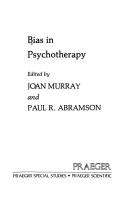| Listing 1 - 10 of 21 | << page >> |
Sort by
|

ISBN: 1282099124 9786612099120 0262266733 1435605985 0262261502 9780262266734 9781435605985 9780262012379 0262012375 9780262515924 026251592X 9781282099128 9780262261500 6612099127 Year: 2007 Publisher: Cambridge, Mass. MIT Press
Abstract | Keywords | Export | Availability | Bookmark
 Loading...
Loading...Choose an application
- Reference Manager
- EndNote
- RefWorks (Direct export to RefWorks)
Should the choice to engage in a faculty-student romance be protected or precluded? An argument that the right to choose a romantic partner is a fundamental right of conscience, protected by the U.S Constitution.Allen Ginsberg once declared that "the best teaching is done in bed," but most university administrators would presumably disagree. Many universities prohibit romantic relationships between faculty members and students, and professors who transgress are usually out of a job. In Romance in the Ivory Tower, Paul Abramson takes aim at university policies that forbid relationships between faculty members and students. He argues provocatively that the issue of faculty-student romances transcends the seemingly trivial matter of who sleeps with whom and engages our fundamental constitutional rights. By what authority, Abramson asks, did the university become the arbiter of romantic etiquette among consenting adults? Do we, as consenting adults, have a constitutional right to make intimate choices as long as they do not cause harm? Abramson contends that we do, and bases this claim on two arguments. He suggests that the Ninth Amendment (which states that the Constitution's enumeration of certain rights should not be construed to deny others) protects the "right to romance." And, more provocatively, he argues that the "right to romance" is a fundamental right of conscience--as are freedom of speech and freedom of religion. Campus romances happen. The important question is not whether they should be encouraged or prohibited but whether the choice to engage in such a relationship should be protected or precluded. Abramson argues ringingly that our freedom to make choices--to worship, make a political speech, or fall in love--is fundamental. Rules forbidding faculty-student romances are not only unconstitutional but set dangerous precedents for further intrusion into rights of privacy and conscience.
Freedom of expression --- Liberty of conscience --- Freedom of conscience --- Intolerance --- Law and legislation --- Conscience --- Toleration --- SOCIAL SCIENCES/Political Science/Public Policy & Law
Book
ISBN: 1282388061 9786612388064 0199742081 9780199742080 0195393899 9780195393897 Year: 2010 Publisher: New York : Oxford University Press,
Abstract | Keywords | Export | Availability | Bookmark
 Loading...
Loading...Choose an application
- Reference Manager
- EndNote
- RefWorks (Direct export to RefWorks)
An epidemic of sexually-transmitted infections and sexual violence is upon us. Political interests are overriding sexual freedom in the name of morality. Marriages are just as likely to fail as they are to succeed. Why, in a time of unprecedented personal liberties and medical knowledge, are so many Americans so uncertain about what constitutes ethical sexual behavior? Sex Appeal is neither a moralistic screed nor a self-indulgent guide to sexual utopia. Instead, it charts a thoughtful course between extremes to present six ethical principles for sexual health and happiness: do no harm, celebr
Sexual ethics. --- Sex. --- Gender (Sex) --- Human beings --- Human sexuality --- Sex (Gender) --- Sexual behavior --- Sexual practices --- Sexuality --- Sexology --- Sex --- Sex ethics --- Sexual behavior, Ethics of --- Ethics --- Moral and ethical aspects

ISBN: 0585063389 9780585063386 0873958624 0873958632 9780791494172 0791494179 Year: 1984 Publisher: Albany, N.Y. State University of New York Press
Abstract | Keywords | Export | Availability | Bookmark
 Loading...
Loading...Choose an application
- Reference Manager
- EndNote
- RefWorks (Direct export to RefWorks)
Sarah is the detailed case history of a UCLA undergraduate, written by a UCLA psychology professor. It is a unique case of psychological survival. Despite vicious sexual abuse, Sarah has managed to adapt, survive, and grow.Balancing the intense emotional impact of Sarah's first-person account, Dr. Abramson's commentary is interpolated throughout the record of Sarah's life. Sarah's story was obtained from seven months of interviewing, plus her diaries, drawings, family photographs, and four years of follow-ups, correspondence, and observations. This book is significant in that it documents psychological resolution in the face of endless abuse and trauma. Dr. Abramson provides an unusual perspective by focusing less on the damage associated with abuse and more on Sarah's gradual development of successful means of coping and surmounting negative patterns. He writes:"If you read carefully, in between the abuse and self-destructive behaviors, Sarah emerges as an active, striving individual. Sarah does not give up--she is appalled, angry, depressed and confused, but she keeps fighting to maintain her integrity. The resolution of Sarah's existential dilemma was the emergence of faith in herself."
Internal Medicine --- Medical --- Women --- Incest --- Prostitution --- Social science --- Family & relationships
Book
ISBN: 0030553814 Year: 1980 Publisher: New York Holt, Rinehart and Winston
Abstract | Keywords | Export | Availability | Bookmark
 Loading...
Loading...Choose an application
- Reference Manager
- EndNote
- RefWorks (Direct export to RefWorks)
Book
ISBN: 0669977411 Year: 1975 Publisher: Lexington, Mass. Heath
Abstract | Keywords | Export | Availability | Bookmark
 Loading...
Loading...Choose an application
- Reference Manager
- EndNote
- RefWorks (Direct export to RefWorks)
Social change --- Age group sociology --- Internal politics --- United States of America
Book
ISBN: 1071801066 Year: 2015 Publisher: Washington : CQ Press,
Abstract | Keywords | Export | Availability | Bookmark
 Loading...
Loading...Choose an application
- Reference Manager
- EndNote
- RefWorks (Direct export to RefWorks)
This text meticulously and accessibly explains the National Election Studies data and analyzes its importance and impact, covering the most recent presidential and Congressional elections, voter turnout, and the social forces, party loyalties, and prominent issues that affect voting behavior.
Political campaigns --- Elections --- Presidents --- Election
Book
ISBN: 0716714205 Year: 1983 Publisher: San Francisco W.H. Freeman
Abstract | Keywords | Export | Availability | Bookmark
 Loading...
Loading...Choose an application
- Reference Manager
- EndNote
- RefWorks (Direct export to RefWorks)

ISBN: 0472065912 9780472065912 Year: 1995 Publisher: Ann Arbor, Mich. University of Michigan Press
Abstract | Keywords | Export | Availability | Bookmark
 Loading...
Loading...Choose an application
- Reference Manager
- EndNote
- RefWorks (Direct export to RefWorks)
Social change --- Political philosophy. Social philosophy --- Sociology of culture --- Europe --- Social values --- Social surveys --- Social conditions --- #SBIB:316.7C121 --- 316.752 --- #SBIB:316.7C122 --- Cultuursociologie: gedragspatronen, levensstijl --- Waarden --(sociologie) --- Cultuursociologie: overtuigingen, waarden en houdingen --- 316.752 Waarden --(sociologie) --- Community surveys --- Surveys, Social --- Social sciences --- Surveys --- Research --- Politieke filosofie. Sociale filosofie --- Sociologie van de cultuur --- Sociale verandering --- Europa --- Social values - Europe --- Social surveys - Europe --- Europe - Social conditions - 20th century

ISBN: 1282422685 9786612422683 0472022393 9780472022397 0472065912 0472095919 9781282422681 6612422688 9780472095919 9780472065912 Year: 1995 Publisher: Ann Arbor
Abstract | Keywords | Export | Availability | Bookmark
 Loading...
Loading...Choose an application
- Reference Manager
- EndNote
- RefWorks (Direct export to RefWorks)
In this pioneering work, Paul Abramson and Ronald Inglehart show that the gradual shift from Materialist values (such as the desire for economic and physical security) to Post-materialist values (such as the desire for freedom, self-expression, and the quality of life) is in all likelihood a global phenomenon.
Social surveys --- Social values --- Community surveys --- Surveys, Social --- Social sciences --- Surveys --- Research --- Europe --- Social conditions

ISBN: 0030632269 Year: 1983 Publisher: New York (N.Y.) : Praeger,
Abstract | Keywords | Export | Availability | Bookmark
 Loading...
Loading...Choose an application
- Reference Manager
- EndNote
- RefWorks (Direct export to RefWorks)
Attitude of health personnel. --- Countertransference (Psychology). --- Identification (Psychology). --- Prejudice. --- Professional-patient relations. --- Psychotherapist and patient. --- Psychotherapy. --- Race --- Sex (Psychology). --- Psychological aspects.
| Listing 1 - 10 of 21 | << page >> |
Sort by
|

 Search
Search Feedback
Feedback About UniCat
About UniCat  Help
Help News
News